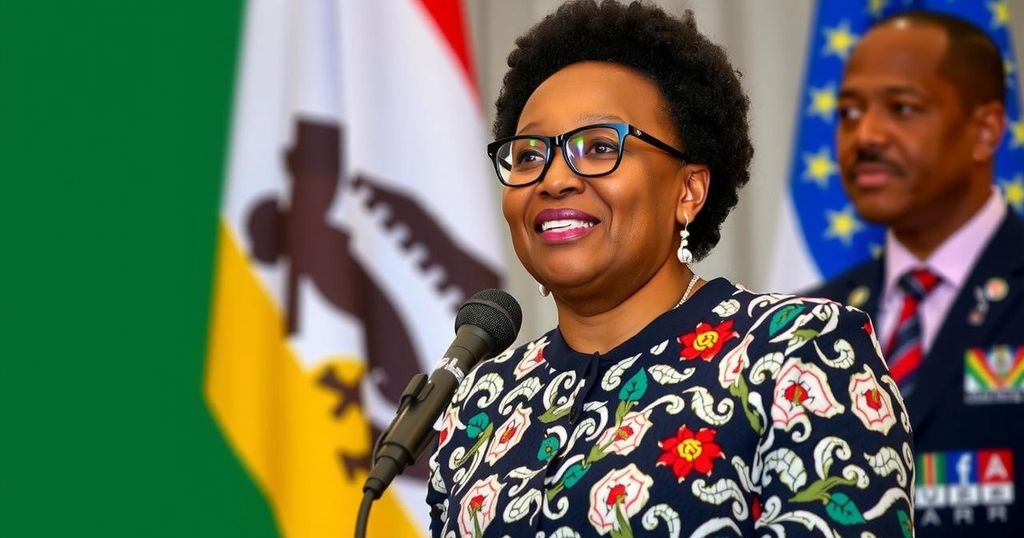Namibia has elected Netumbo Nandi-Ndaitwah, the first female president, with over 57% of the vote amid election disputes. The process faced significant logistical challenges, including long waiting times and ballot shortages, leading the opposition to reject the results and raise concerns of manipulation.
Namibia has made history by electing its first female president, Vice-President Netumbo Nandi-Ndaitwah, following a contentious electoral process. At the age of 72, she stands to lead the nation under the banner of the South West Africa People’s Organisation (SWAPO), which has been in power since the country gained independence in 1990. The announcement from the Electoral Commission of Namibia (ECN) reported that Nandi-Ndaitwah received more than 57 percent of the votes, while her main opponent, Panduleni Itula of the Independent Patriots for Change (IPC), garnered 25.5 percent.
The election was marred by significant logistical complications, leading to an extended voting period due to a shortage of ballot papers and excessive wait times at polling places. Some voters reportedly endured queues lasting up to 12 hours, causing frustration and discouragement. The IPC has accused the election authorities of manipulating the process, stating that the delays were a calculated effort to dissuade voter participation. Itula firmly declared that the IPC would not accept the election results, citing numerous irregularities and affirming their intention to challenge the outcome legally.
Election monitors from a regional human rights organization condemned the extensive delays at polling stations, suggesting they were neither incidental nor isolated. The electoral authority has acknowledged its shortcomings in facilitating the election, which included equipment failures and the aforementioned ballot issues. This situation has raised significant concerns regarding the integrity of the electoral process in Namibia.
The election of Netumbo Nandi-Ndaitwah as Namibia’s first female president marks a pivotal moment in the nation’s political history. Governed by SWAPO since 1990, the country has seen a predominance of male leadership, making Nandi-Ndaitwah’s election emblematic of progress and change. However, the recent election was accompanied by allegations of irregularities and logistical challenges, leading to widespread criticism of the electoral process and questioning of the election’s legitimacy. Such issues underscored the need for electoral reforms to ensure fair and transparent elections going forward.
In conclusion, the election of Netumbo Nandi-Ndaitwah represents a monumental achievement for gender representation in Namibia’s leadership. However, the electoral process itself has raised serious concerns, characterized by delays, insufficient resources, and allegations of manipulation, especially from the opposition IPC. It remains to be seen how these challenges will impact the new presidency and whether electoral reforms will be implemented to enhance the integrity of future elections.
Original Source: www.nigerianeye.com






